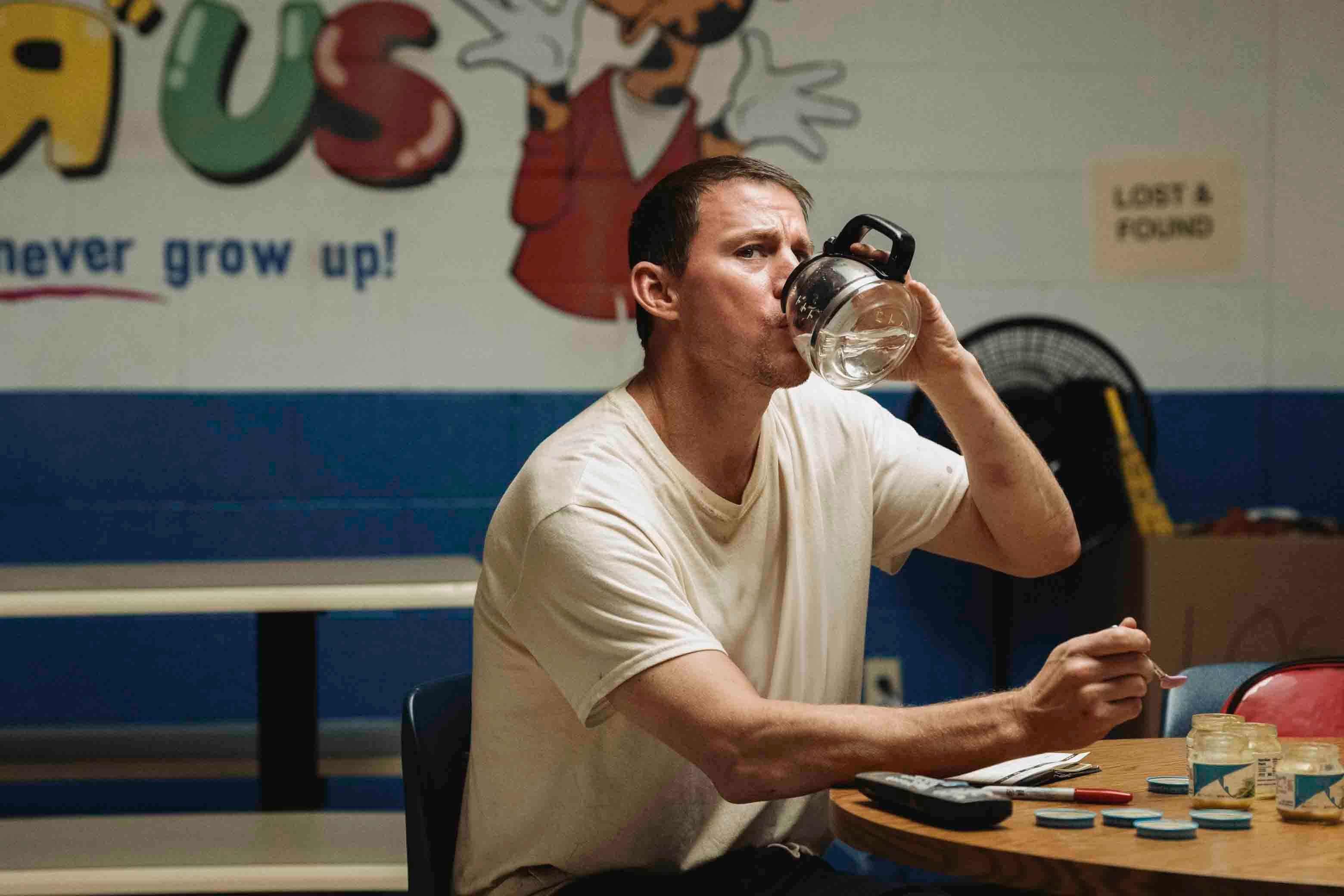Roofman Review: Channing Tatum Delivers in Derek Cianfrance's Charming Con Comedy
Things keep moving in spite of a shallow story and underwritten supporting characters

This post is free but it’s worth it to become a paid member of The Film Maven community! Paid subscribers are the backbone of The Film Maven and becoming one shows support for independent journalism, as well as female- and disabled-created content. It also allows me to write really fun articles and hire freelance writers. Becoming a paid subscriber gives you access to The Trade, my examination and exploration of topics in the entertainment industry, my Popcorn Disability articles on disabled representation in film, and chat with me on our exclusive Discord server.
Don't want to commit to a subscription? Leave a tip to show you enjoy what you're reading.
Enjoy what you’re reading? Share it with friends. Help us get to 1,000 subscribers by the end of 2025 and I’ll do a full written and video review of Francis Ford Coppola’s Megalopolis.
Read more about the history of disability in film by pre-ordering my upcoming book, Popcorn Disabilities: The Highs and Lows of Disabled Representation in the Movies. I not only expand on what you’re reading here, but examine the stereotypes, tropes, and the good, bad (and really ugly) of disabled movies. Preorder the book by clicking this link! Send me proof of your preorder and I’ll give you a paid subscription to The Film Maven for one year!
During a recent Q&A before his latest movie, Roofman, director Derek Cianfrance joked about how this was the first movie he's made that didn't depress the audience. The director, whose previous features include 2010's Blue Valentine and The Place Beyond the Pines (2012), is certainly onto something. Roofman is by far Cianfrance's most accessible work in that it's a somewhat lighthearted, Capra-esque (to quote fellow film critic Courtney Howard) exploration of family and connection.
But the whole doesn't quite work 100%, with its leading man forced to hold everything together. It is Channing Tatum who keeps the audience riveted to Roofman, even when the script gives him a gaggle of underwritten characters to work opposite.
Jeffrey Manchester (Tatum) is a kindhearted man devoted to his family. He's also a career criminal who has robbed dozens of McDonalds stores in the 1990s, albeit with a "thank you" to those he places in the freezer. When he's caught and sentenced to 45 years in prison, Jeff is worried about losing his family so he decides to break out. A series of bad decisions sees him hole up in a North Carolina Toys R Us until he can flee the country. But, desperate to stave off loneliness, Jeff spends his days outside the Toys R Us where he eventually falls for one its employees, single mom Leigh (Kirsten Dunst).
We meet Jeff after he's broken in via roof to his latest McDonalds. He knows the employees by name and chastises the manager for not having a coat so he can stay warm in the freezer. Jeff is a criminal out of necessity, desperate to give his precocious daughter the bike she wants and convince his estranged wife that he can provide for them. Right away, though, the lack of writing towards anyone other than Jeff is apparent. Jeff's wife, a wasted Melonie Diaz, comes off as selfish and greedy, upset that Jeff can't buy them a big house more than he can't pay their bills. Even his daughter, who clearly is close to her father, comes off as a small child more interested in a flashy bike than the heartfelt speech Jeff gives her as he presents her with a beat up Erector set.

Cianfrance dabbles with similar themes as in Place Beyond the Pines, specifically how crime ends up being a series of choices we make. We justify them how we have to. The experience of watching a movie is to watch that character's choices and become frustrated at how things could have turned out differently. Jeff "Roofman" Manchester is no different. As he narrates, with an opening that's a bit too "I bet you're wondering how I got here" for comfort, Jeff himself is aware that where he's ended up is through the series of dumb choices he engaged in.
But there's a vein of greed that runs through Jeff himself that motivates his actions yet screenwriters Cianfrance and Kirt Gunn make it so subtle as to miss it entirely. There's little reason why Jeff can't get a job. His best friend Steve (LaKeith Stanfield) points out how perceptive Jeff is and how successful he was in the military. Much of Jeff's decisions appear to be motivated by a desire to get rich quick more than anything. Hell, his prison escape is easily one of the smartest in its simplicity. In a great heist-esque montage the camera captures Jeff plotting his method of escape and stitching together clothes via dental floss. He's either a genius or a criminal mastermind.
Tatum is a total charm bucket and keeps the audience on Jeff's side, no matter what. When he finds sanctuary in the local Toys R Us he revels in living every child's (or adult with an inner child) dream. Tatum has an amazing quality of indulging a childlike immaturity that doesn't come off as cringe or creepy as he dances in his underwear, scarfs down peanut M&Ms and puts together a quasi-bedroom filled with Spice Girls posters and beanbag chairs. Yet Jeff has such a deep well of loneliness that, in spite of him being on the run, compels him to start bonding with the store's employees, whom he spies on via discreetly placed baby monitors.
Once Jeff and Leigh meet up the movie transitions into a standard romance with the question lingering over their heads as to when Jeff will be caught. His relationship with Leigh doesn't quite fall into the Dirty John trap, but Jeff does fall right away in his old habits, motivated less by a venal wife and more his own belief that money equals happiness. That and Leigh's youngest daughter acts as a surrogate for his own abandoned children--who Jeff appears to drop and take back up like a pair of shoes.

Roofman's momentum changes in its second and third acts, akin to more like a Linkletter film as Jeff and Leigh get closer. Where Tatum, though, has a defined character and the personality to match, Leigh is written so flatly that it leaves Dunst struggling to shine. And the fact that she still does is a testament to her power as an actor. All that's known about Leigh is that she's a single mother--it's a trait so defining even her manager, Mitch (Peter Dinklage) complains she brings it up too often--trying to raise two daughters, and she enjoys going to church. Dunst gives off such an effervescence but it's muted because of how one-note Leigh feels as a character. She's purely the motivation, or justification, Jeff needs to fuel his new life of crime.
Other characters like Dinklage's Mitch and Emory Cohen's Otis are there purely to fill out the Toys R Us break room. Stanfield and Juno Temple as Steve and his flighty girlfriend bring some levity but are equally written to exist purely in the confines of the scenes they're in.
The pacing becomes as complacent as Jeff upon meeting Leigh, which makes the two hour runtime start to strain against the audience's attention. Jeff's ending is immediately known, whether you're aware of his case or not, and culminates with more of a whimper. There are some hilarious interviews and photos though with the real people, many of whom Cianfrance interviewed for a year while the movie was developing, that add an additional layer of authenticity.
Roofman succeeds on Channing Tatum's charm which covers up for a pretty thin script. Cianfrance tells another story about personal choice that, unlike his past work, does feel lighter and more hopeful. But that could just be because of how much fun Tatum has in the role.
Grade: C
Roofman is in theaters October 10.
Are you excited to see Roofman? Leave a comment below.
Let’s work together! If you have editorial opportunities and would like to collaborate with me on an entertainment or disability project, drop me a message.




